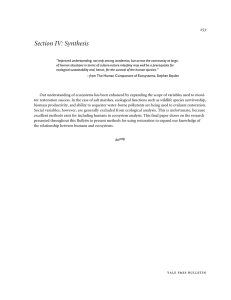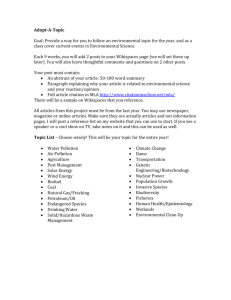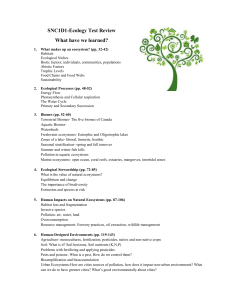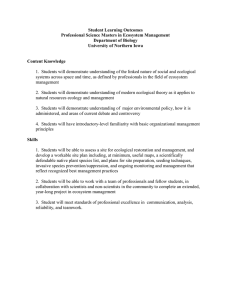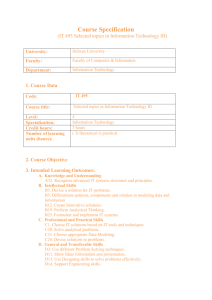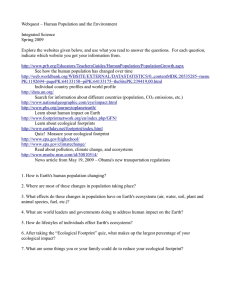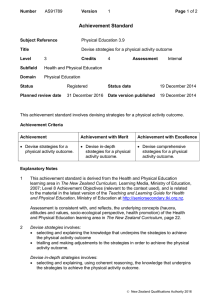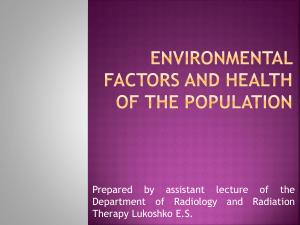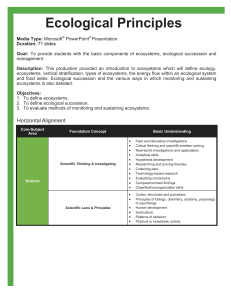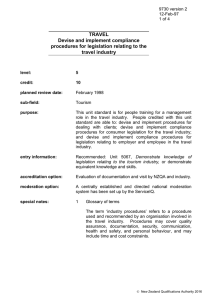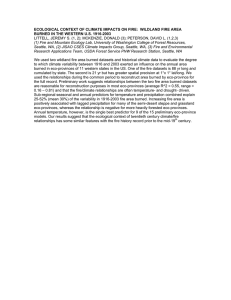Environmental Science and Resource Management Undergraduate Student Learning Objectives
advertisement
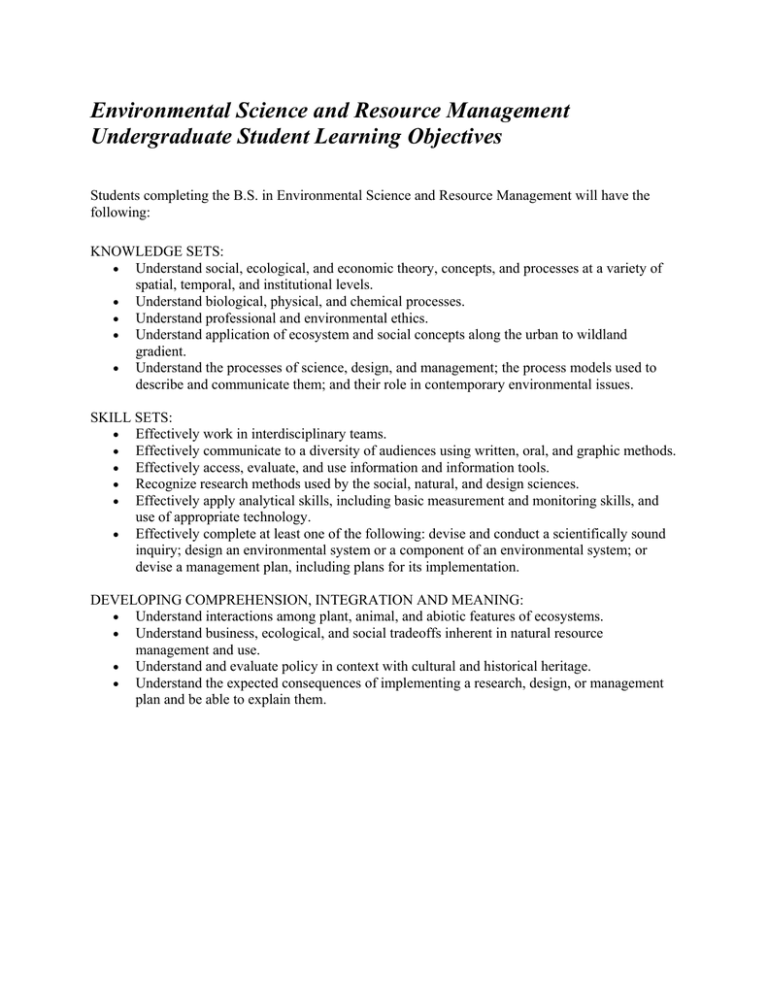
Environmental Science and Resource Management Undergraduate Student Learning Objectives Students completing the B.S. in Environmental Science and Resource Management will have the following: KNOWLEDGE SETS: • Understand social, ecological, and economic theory, concepts, and processes at a variety of spatial, temporal, and institutional levels. • Understand biological, physical, and chemical processes. • Understand professional and environmental ethics. • Understand application of ecosystem and social concepts along the urban to wildland gradient. • Understand the processes of science, design, and management; the process models used to describe and communicate them; and their role in contemporary environmental issues. SKILL SETS: • Effectively work in interdisciplinary teams. • Effectively communicate to a diversity of audiences using written, oral, and graphic methods. • Effectively access, evaluate, and use information and information tools. • Recognize research methods used by the social, natural, and design sciences. • Effectively apply analytical skills, including basic measurement and monitoring skills, and use of appropriate technology. • Effectively complete at least one of the following: devise and conduct a scientifically sound inquiry; design an environmental system or a component of an environmental system; or devise a management plan, including plans for its implementation. DEVELOPING COMPREHENSION, INTEGRATION AND MEANING: • Understand interactions among plant, animal, and abiotic features of ecosystems. • Understand business, ecological, and social tradeoffs inherent in natural resource management and use. • Understand and evaluate policy in context with cultural and historical heritage. • Understand the expected consequences of implementing a research, design, or management plan and be able to explain them.
